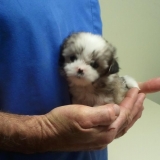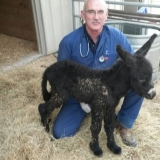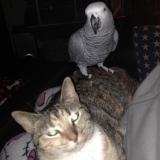Reportable Diseases
Tax season is upon us already. Accountants are busily reporting things to the government. It's what they do. Veterinarians have to make reports to the government as well. In their case it is reportable diseases.
Reportable diseases are broadly lumped into two categories. The first is disease that is not found in the United States. Such diseases might include foot and mouth disease or screw worm infestation. The other category are diseases that occur here but can cause significant problems with livestock and horses or can infect people as well.
It is the Texas Department of Public Safety keeps track of all rabies cases in the state. They provide state wide maps of the incidence of the disease and the affected species. Ask your veterinarian to see the map. It underscores the threat that rabies poses in the state of Texas. With large bat populations throughout the state, rabies will always be with us.
There are several diseases in horses that must be reported to the state. Equine Infectious Anemia (reported on a Coggins Test), all the strains of encephalitis, Vesicular Stomatitis and equine viral arteritis. People can get encephalitis so it is an important aspect of public health to keep track of the disease where ever it pops up. It is transmitted by mosquitoes.
Vesicular stomatitis is endemic in West Texas and affects many species. Veterinarians must keep track of this disease and monitor the movements of animals in and out of affected areas. Vesicular stomatitis can infect both horses and livestock.
A real threat to US poultry supply is exotic newcastle disease. It is highly contagious and the mortality rate can reach 100% in unvaccinated birds. Smuggled parrots from Latin America pose great risk to our domestic bird population. Parrots are carriers of the disease and they don't show symptoms of the disease. They can carry the virus for up to 400 days. Do your part to keep this disease out of the US by only buying parrots from reputable, domestic breeding establishments.
Thanks to endless work by the government the screw worm was eradicated in the US. But constant vigilance by veterinarians is necessary to keep it at bay. In 2016 it reappeared in the Florida Keys. It then spread to the mainland and infected a dog. It was caught early, isolated and successfully treated.
Veterinarians keep track of reportable diseases and can alert their clients if there is an issue in the area. Give us a call before traveling with your pet. Having all necessary health certificates and travel certificates completed in advance of your travels will allow your vacation with your pet to go much more. If you are looking at importing animals, again talk with us to make sure all the needed healthwork is in order.














